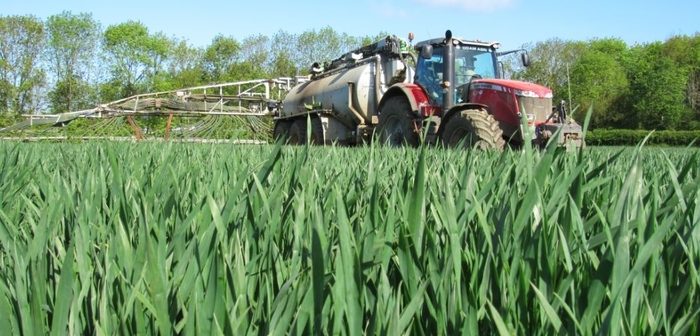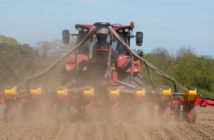Preventing food waste going to landfill is perhaps the best-known benefit of food waste recycling but it’s a little known fact that all over Gloucestershire the process is also helping farmers grow bigger and healthier crops.
While the food waste recycling process carried out by anaerobic digestion specialist Andigestion at its Bishop’s Cleeve plant near Cheltenham produces ‘green energy’ which is fed into the national grid for use in local homes, farmers all over the county are quickly recognising that the ‘digestate’ by-product – a mineral-rich, liquid fertiliser – is also a very valuable and eco-friendly resource.
Often referred to as ‘rocket fuel’ – a description it’s earned from its high nitrogen content so vital to plant growth – digestate can be spread on to either arable crops or pastureland for animal grazing. Just two or three applications during the growing season delivers a healthy cocktail of nitrogen, phosphate and potassium for bigger, stronger crops which in turn means a better yield per acre for farmers. Not only is it totally sustainable, but it’s also relatively quick to spread and significantly cheaper than mass produced, chemical fertilisers.
The recycling of the digestate from Andigestion’s Bishop’s Cleeve site is managed by specialist recycling company 4R Group. The digestate is either tankered to the farms for spreading on the same day or in some cases 4R works in partnership with individual farmers to create their own digestate storage lagoons – this benefits the farmers even more as it means the digestate is on farm ready for use during the crop’s optimum growth period. In all cases, the 4R Group will analyse the soil ahead of the process to determine the correct application rates and provide detailed field spreading maps to ensure accurate and effective spreading for maximum benefit.
Andy Knight, Field Officer for the 4R Group, says: “At a time when farmers are often criticised for the amount of chemical fertiliser they apply to the land, this represents a real breakthrough in terms of eco-friendly and sustainable land management.
“Digestate is the perfect solution – it’s pasteurised before use so it’s totally safe for spreading on to the land, it’s chemical-free, it hasn’t gone through a manufacturing process and it hasn’t been transported large distances so its carbon footprint is minimal,” he adds. “Longer term, it also helps to improve soil structure and saves farmers on average around £110 per hectare over bagged fertiliser.”




